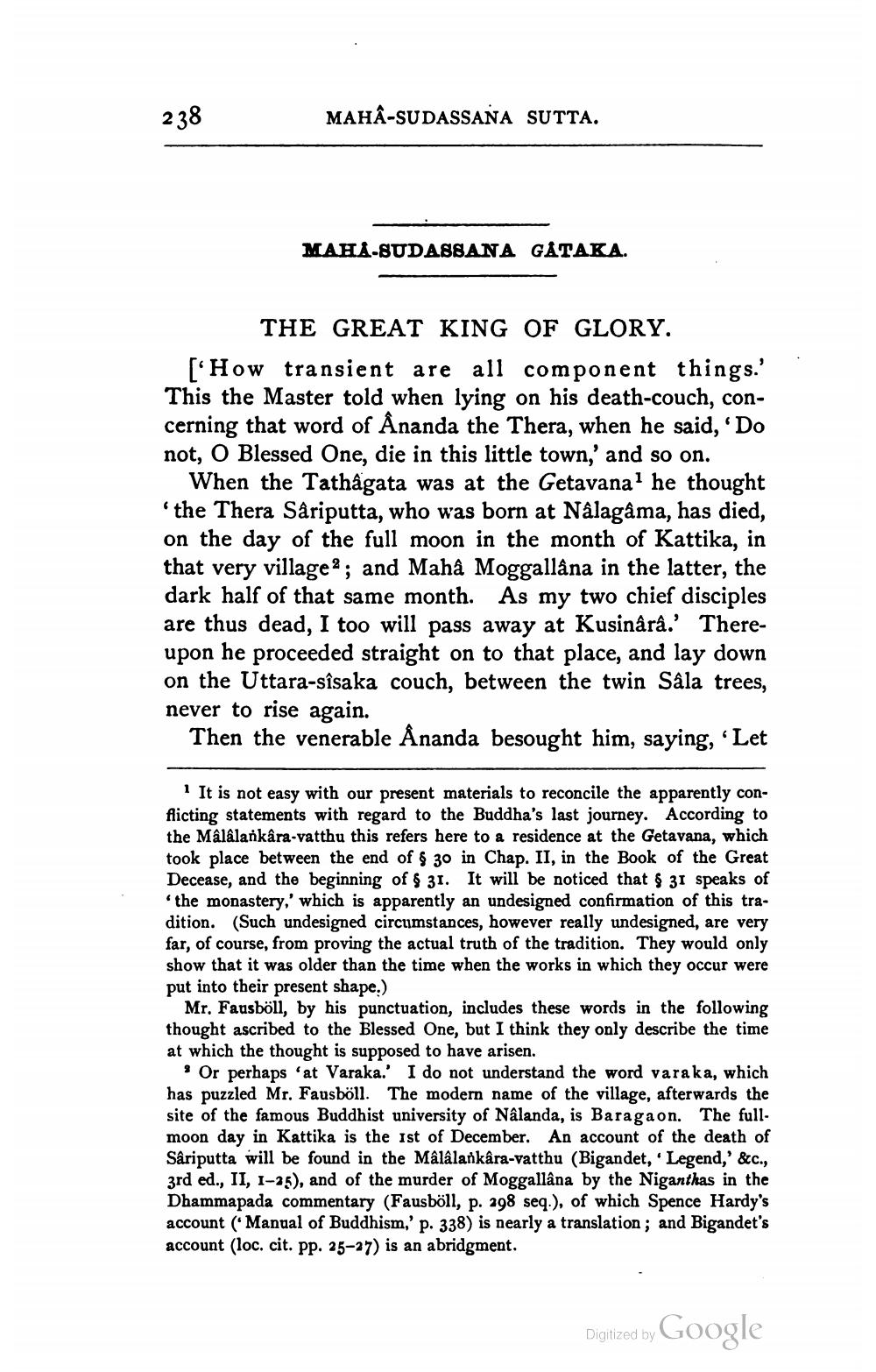________________
238
MAHA-SUDASSANA SUTTA.
MAHA-SUDABBANA GÅTAKA.
THE GREAT KING OF GLORY. [How transient are all component things.' This the Master told when lying on his death-couch, concerning that word of Ånanda the Thera, when he said, 'Do not, O Blessed One, die in this little town,' and so on.
When the Tathagata was at the Getavana' he thought 'the Thera Säriputta, who was born at Nålagama, has died, on the day of the full moon in the month of Kattika, in that very village?; and Maha Moggallâna in the latter, the dark half of that same month. As my two chief disciples are thus dead, I too will pass away at Kusinârâ.' Thereupon he proceeded straight on to that place, and lay down on the Uttara-sîsaka couch, between the twin Sala trees, never to rise again.
Then the venerable Ånanda besought him, saying, 'Let
It is not easy with our present materials to reconcile the apparently conflicting statements with regard to the Buddha's last journey. According to the Mâlâlankâra-vatthu this refers here to a residence at the Getavana, which took place between the end of $ 30 in Chap. II, in the Book of the Great Decease, and the beginning of $ 31. It will be noticed that $ 31 speaks of
the monastery,' which is apparently an undesigned confirmation of this tradition. (Such undesigned circumstances, however really undesigned, are very far, of course, from proving the actual truth of the tradition. They would only show that it was older than the time when the works in which they occur were put into their present shape.)
Mr. Fausböll, by his punctuation, includes these words in the following thought ascribed to the Blessed One, but I think they only describe the time at which the thought is supposed to have arisen.
Or perhaps 'at Varaka.' I do not understand the word varaka, which has puzzled Mr. Fausböll. The modern name of the village, afterwards the site of the famous Buddhist university of Nalanda, is Baragaon. The fullmoon day in Kattika is the ist of December. An account of the death of Sâriputta will be found in the Mâlâlankâra-vatthu (Bigandet, Legend,' &c., 3rd ed., II, 1-25), and of the murder of Moggallâna by the Niganthas in the Dhammapada commentary (Fausböll, p. 298 seq.), of which Spence Hardy's account (Manual of Buddhism,' p. 338) is nearly a translation; and Bigandet's account (loc. cit. pp. 25-27) is an abridgment.
Digitized by Google




